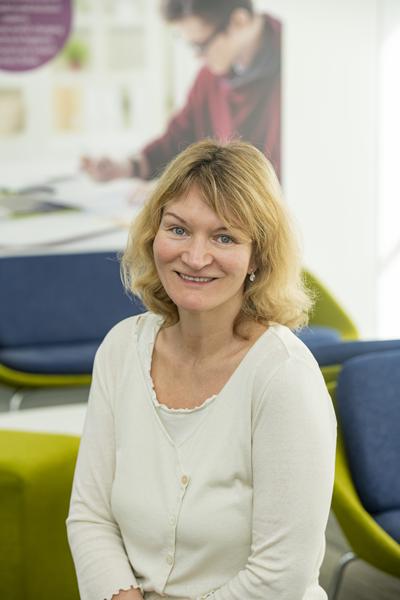Research interests
Sustainable hairdressing:
I am principal investigator on an ESRC grant: Embedding Sustainability in the Hairdressing Curriculum - Sustainable Solutions for the Hair & Beauty Sector. This follows on from a previous ESRC funded project: ‘Engaging Hairdressers in Pro-environmental behaviours’. As part of this project we have developed a virtual salon training programme and associated sustainable stylist/salon certification see Eco hair and beauty
I was thrilled to win the ESRC Outstanding Impact in Business and Enterprise Award for this research into the environmental impacts of hairdressing. You can see details of what we’ve achieved visit the news story and a short video.
Green Stories writing Competition
This is a project that aims to engage the public in creating positive visions of a sustainable society via a series of creative competitions. visit Greenstories. Our first writing competition asked for short stories set in a sustainable society and Retreat West plan to publish the 20 best stories in an anthology ‘Resurrection Trust’ in Spring 2019. Royalties will be put towards prizes for a series of competitions next year, with more formats (film, screenplays, radio plays, stage plays, TV series, full-length novels etc.)
SMEs and CSR/sustainability:
I have conducted research with businesses on their understanding of Corporate Social Responsibility. A more specific study focussed on SMEs ‘Understanding the attitudes and behaviours of SME owner/managers in response to the inclusion of Corporate Social Responsibility (CSR) criteria in procurement strategies of large organisations: with consequent practice and policy implications’.
Ethical Issues in news/Positive news:
Additional current projects relate to ethical issues in the news sector, which involved interviewees with news editors and senior journalists from Reuters, BBC, Sky News, Al Jazeera and ‘Positive News as well as freelance journalists. I was awarded an impact grant from the ESRC to disseminate our research outcomes – ‘Updating current ‘news values’ to reflect research on impacts of news presentation on viewers/readers’.You can hear more in the Guardian podcast.
Fidel Castro and leadership style:
I am conducting research in Cuba about Fidel Castro's leadership style and the contrast in leadership style with his brother Raul Castro. See BBC24 interview following Fidel Castro’s death on 26/11/2016 watch Dr Denise Baden battles with the establishment view of Fidel Castro at the BBC on You Tube
This interview was deconstructed by medialens in an article. You can also hear a 5 minute soundscape incorporating interviews with Cubans.
‘Fidel’: a musical by the people:
Inspired by my research trips to Cuba, I decided it was time to make available more objective information about the unique island of Cuba via the medium of a musical project.
For more information visit The Conversation website
In collaboration with the School of Music, I launched a project where we ask students to write songs for a brand new musical about Fidel Castro and the Cuban revolution. The next deadline is 3rd April 2017.
I have written the script and provided space for 20 songs. We then judge them and the winners are chosen for the musical. It's been hugely successful with over 750 schools/colleges signed up and some great songs.
For more information visit the Fidel the musical play YouTube page
Visit Fidel the musical website.
Cuban business models:
I am working with colleagues from Kings College London and the International Institute of Cuban Studies, exploring sustainable business models in the biotech sector in Cuba.
Other interests:
Sustainable Business Models; access-based/sharing economy approaches; CSR discourse; efficacy of teaching methods in CSR and ethics; how to embed sustainability practices in corporate policies and HR practices, ethical consumption, moral capital.
Professor Denise BadenSouthampton Business School, University of Southampton, Highfield, Southampton SO17 1BJ, UK
Room Number : 2/5012
Professor Denise Baden's
personal home page 